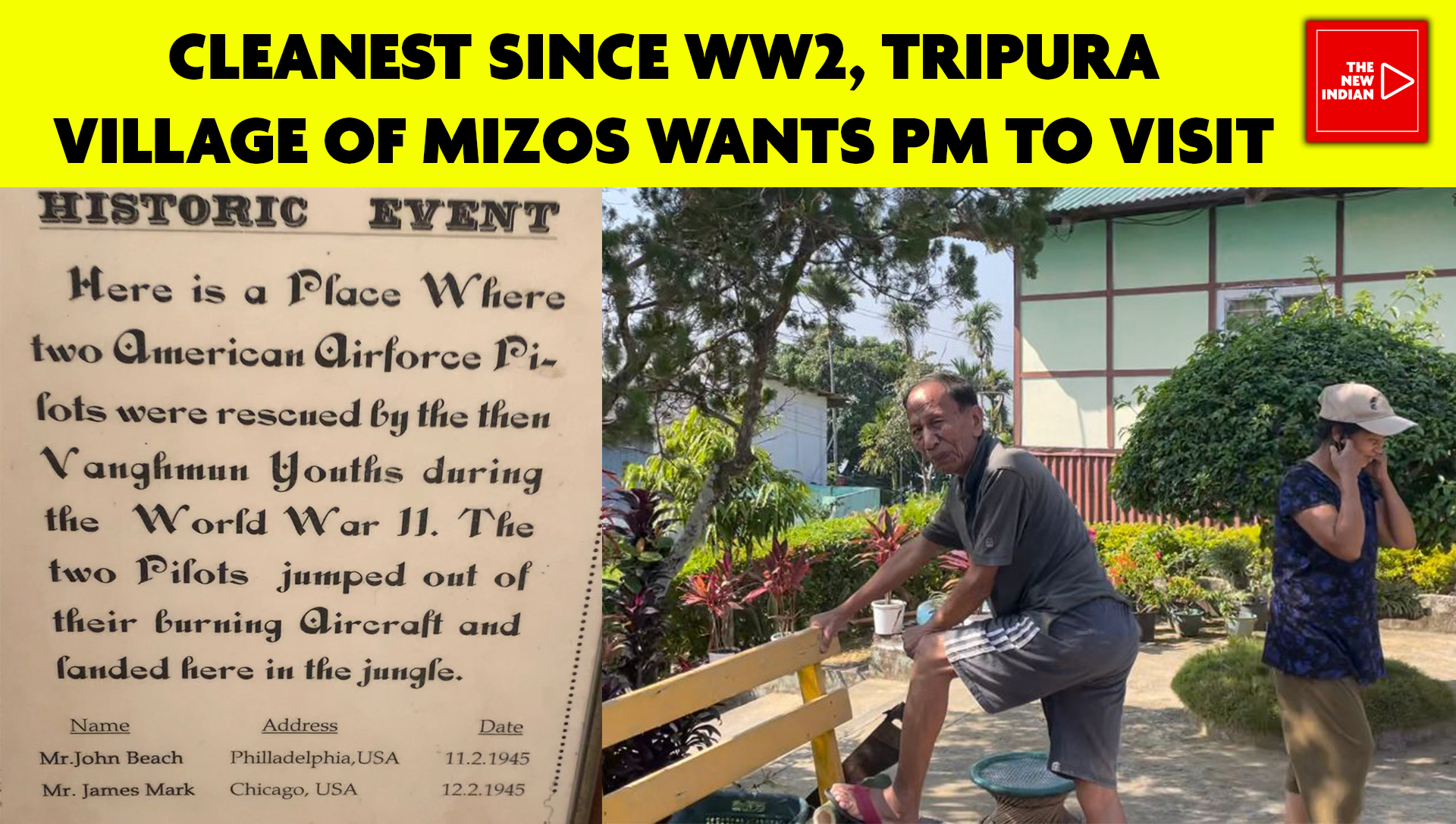VANGHMUN (JAMPUI): With his one leg resting on a bench in a garden full of orchirds, lillies, daisies and other bright flowers, Lallianngena Sailo looks at complete ease as he chops bamboo into small logs to make a step-ladder out of it.
The quaint settings of lovely Jampui hills — a block in North Tripura — overlooking his home in village Vanghmun is a broad hint that there’s something unique about this place.
“You are in the cleanest village of Tripura,” smiles Sailo, a 70-year-old pensioner and former teacher of English and Mizo. He is joined by his wife, who is neatly dressed in a skirt and pea-cap.
The couple, after putting their washing on a clothesline for drying, would head out to look after areca-nut trees plantation, a horticulture occupation that keeps most of Vanghmun villagers busy for an entire year.
Jampui hill range has 11 villages where Mizo, also known as Lushai tribes, live. The population of Jampui is roughly 15,000, while that of Vanghmun is about 1,512 with just 256 families. Vanghmun was established in 1919 by erstwhile Raja Bahadur Dokhuma Sailo, a philanthropist Mizo chief. With just 20 houses, he set up this village and made the cleanliness drive an inherent part of their culture — a tradition that they have managed ever since.
Beautiful homes, spotless roads, no honking and no litter, women, men, boys and girls cheerfully and effortlessly moving around, one could as well be in a parallel world.
“No livestock is allowed in the village. If any villager has to keep any livestock, like pig, sheep, hen or cattle, they have to do that outside the village at an isolated place. Never inside the village,” shares J D Mawia, SEO, Jampui Hill ICSD project, Vanghmun.
Based in Jampui, an NGO called Youth Mizo Association (YMA), has its presence all across 11 villages. The NGO connects with villagers every Saturday and Sunday and carries out drives with residents to clean roads, self-pick up trash and dump into a common vehicle and bury that in forests. Sometimes they even dig in the backyard of their homes if need be but ensure no litter is left out in the open.
“Each household makes a contribution of Rs 50 to engage a garbage vehicle for this purpose. Dustbins are placed at different strategic points along the village street and are looked after by the YMA. Every household takes responsibility for cleaning their house and surroundings. The villagers in their own capacity and style identify a dumping ground. It may not be the best way to do that but with limited resources that’s how we have managed,” says Nunsanga, school headmaster, St Thomas school, Vanghmun.
He cites a historic reference of a visit by a lady Miss M E Tuirner, a missionary from New Zealand during 1952-58 who inspired people to clean their village. While most villagers follow Christianity here, they say they respect other religions and conduct awareness programmes in schools, church and public places. Most of the Mizo tribals proudly take up government jobs and cultivate oranges and areca (supari) after retirement with several Muslim traders from Assam being their clients.
Though some kids openly carry air guns for occasional shooting, they are protective of their environment. The village also credits the women for bringing aesthetic sense despite limited resources to Vanghmun.
“We are happy that we are farmers and don’t have income tax to pay. Our savings are meagre and sufficient to live a good lifestyle. We don’t have desires for the riches. Our women here spend the money to bring natural beauty by growing flowers outside our homes. Our YMA needs to get the credit,” says Zarsoliana, Village Council President (VCP). A VCP in a village in Jampui hills is elected by the villagers themselves.
They are happy with PM Narendra Modi’s thrust on Swachh Bharat but they cheekily smile saying they had been doing this before he inspired the rest of India.
“Vanghmun and the whole of Jampui hills want to welcome the Prime minister of India. This is one of the most peaceful areas of Mizos, we want to welcome our PM,” says Mawia.
On this trip, we also learnt how Jampui earned its name during World War II. It was the crash landing of an American fighter plane on 14th November, 1944 where the pilot and co-pilot were rescued by the people of Vanghmun after they jumped. So the word Jump gave the name Jampui. A framed memento of that year proudly hangs at a government-run Eden Lodge in Jampui.
“Here is a place where two American Airforce Pilots were rescued. The two pilots (John Beach from Philadelphia and James Mark from Chicago) jumped out of their burning aircraft and landed here,” the memento reads.
To boost their confidence, Tripura CM Biplab Deb had this year visited Vanghmun, the first ever head of the state to visit this village of Mizos – the tribal people — in 20 years. He then visited the football ground too. His government had declared Vanghmun as open defecation free (ODF) in 2019.
The New Indian also found a hidden gem and the price of honesty in a village Bangla right to Vanghmun where people sell their products at an unattended shop.
“We only fix a price tag on fruit, colas, chips, snacks and keep a money box here. Whoever wants to sell can keep their products at this place and the buyer can place the money back in the moneybox. It’s like a local version of auto-operated kiosks at airports,’ grins Lalchhuan Mawia, a betel-nut farmer.
The New Indian team leaves Rs 40 after picking up four bananas for ourselves.

